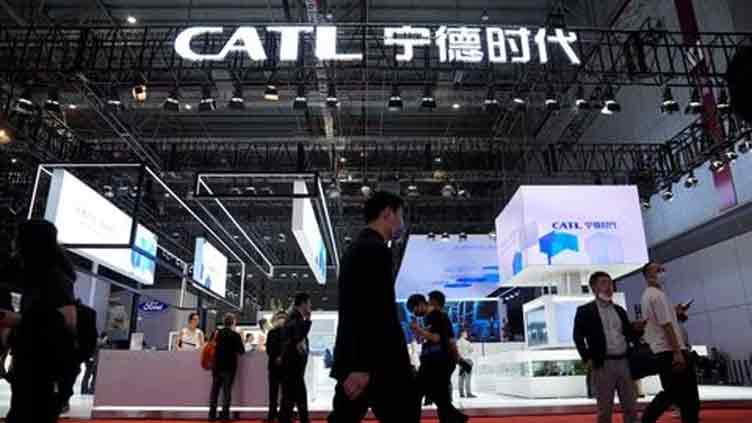China's CATL unveils condensed matter battery to power civil aircraft

Technology
The battery will have an energy density of 500 Watt hours per kilogramme
SHANGHAI (Reuters) - Chinese battery giant CATL (300750.SZ) on Wednesday unveiled a condensed matter battery that it said could supply enough energy to power electric passenger aircraft for civil aviation use.
The battery, a type of semi-solid state product with condensed electrolyte and new anode and separator materials, will have an energy density of 500 Watt hours per kilogramme (Wh/kg), according to Wu Kai, CATL's Scientist in Chief, speaking to reporters at the Shanghai auto show.
The company is working with unspecified partners to ensure the battery is qualified for aviation use in terms of safety and quality, Wu said.
CATL will also be able to start mass production of the condensed matter battery for electric vehicle uses later this year, Wu added.
Condensed matter technology is being embraced by battery makers competing to develop new materials to improve energy density of the current generation of lithium-ion batteries, which is under 300 Wh/kg.
Chinese electric vehicle (EV) maker Nio (9866.HK) is planning to power its ET7 cars with a semi-solid state battery with 360 Wh/kg energy density developed by Beijing Welion New Energy Technology.
CATL on Tuesday also announced its targets to achieve carbon neutrality with all its battery making plants by 2025, and across its battery value chain by 2035.
The commitments are important for CATL to meet increasing standards and regulations for the carbon footprint of its batteries in Europe and the United States as CATL expands into those markets.
Robin Zeng, CATL Chairman, said last year that it is essential to reduce carbons emissions in the batteries, which account for nearly 40% of all carbon emissions produced in the cycle of battery electric vehicles.
Zeng said his company had ramped up efforts since 2019 to analyse and seek solutions for carbon reduction in the battery-making industry, saying battery makers in China, Japan and South Korea have had a significant carbon footprint.

